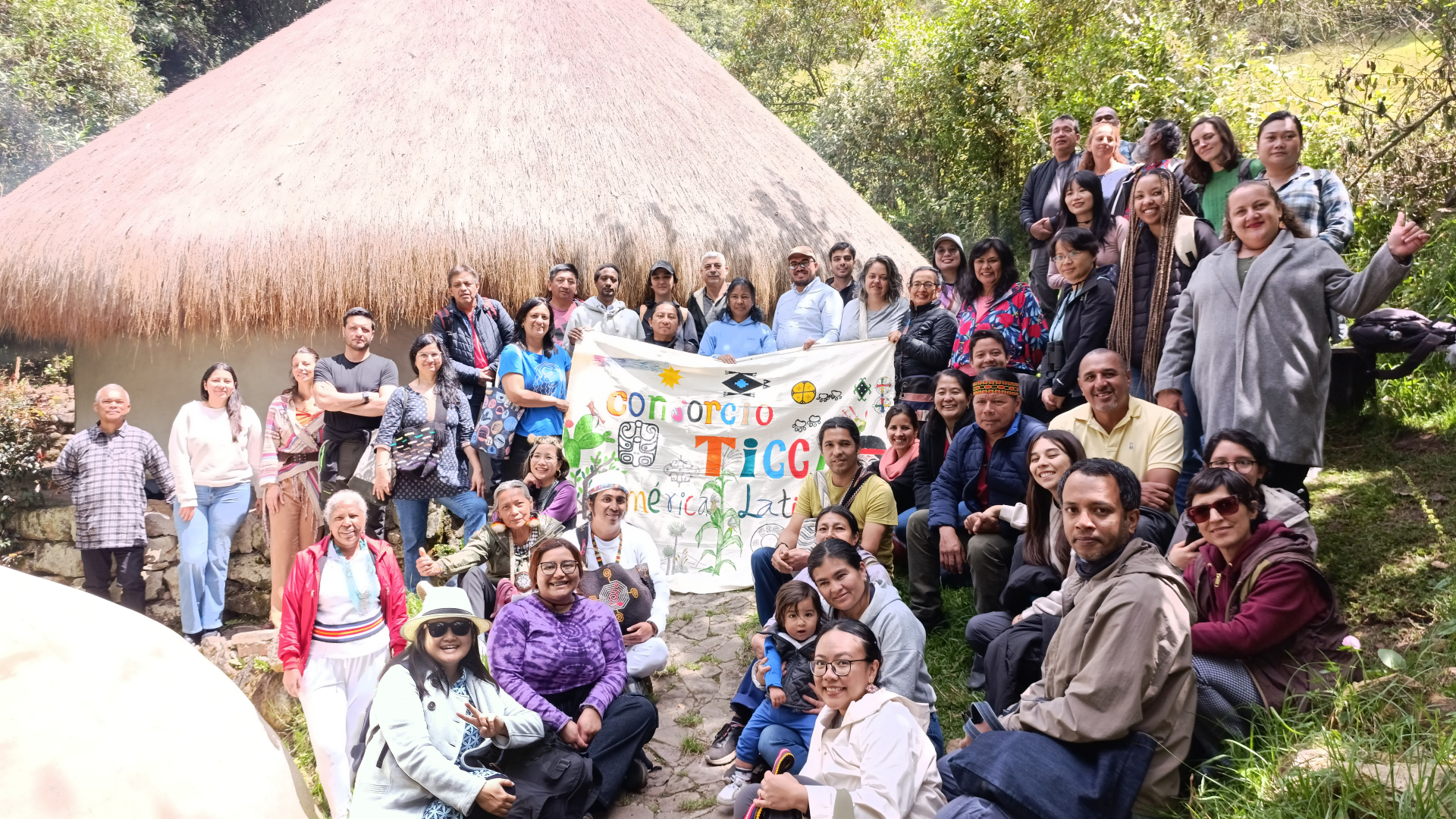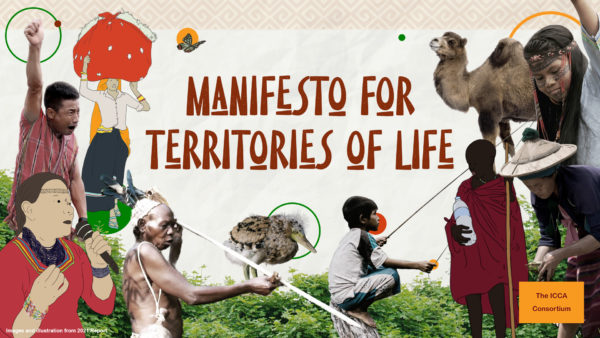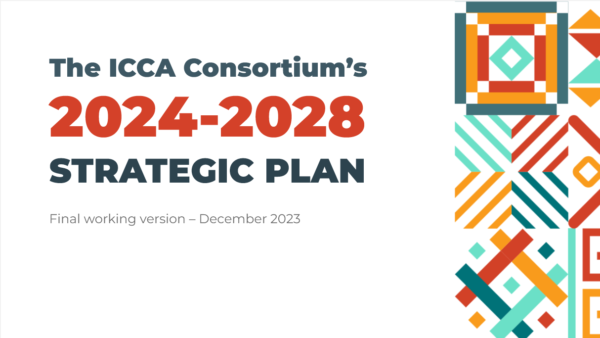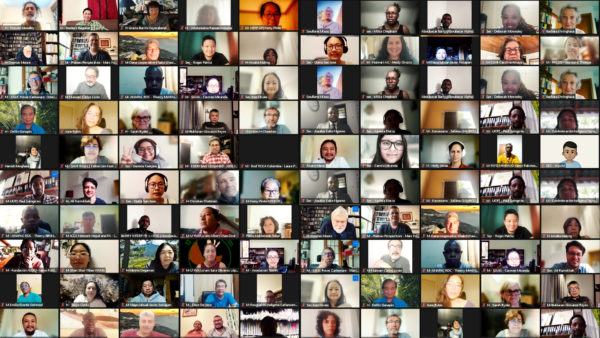The discussions and debates in the meeting clarified the Consortium's path forward, positioning it better to address the challenges faced by Indigenous Peoples and local communities
First published on 12/10/2024, and last updated on 07/08/2025
By ICCA Consortium
The ICCA Consortium held an in-person meeting in Guasca, Colombia, from October 16 to October 18, 2024.
Members of the Secretariat, the Council, and the Council of Elders were invited to the meeting. Additionally, one representative from each regional coordination team was invited. The criteria for participant selection aimed to allow broad representation from across the Consortium’s bodies and regional teams.
Fifty participants attended the meeting: 16 from the Council, two from the Council of Elders, 24 from the Secretariat, and eight from the regional coordination teams and technical staff.
The primary purpose of the meeting was to continue the process of organizational transformation, aligning the Consortium’s operations with its core mission and values. Several key objectives shaped the agenda of the gathering:
- Advancing the regionalization process.
- Clarifying roles and responsibilities across the Consortium.
- Strengthening governance and communication structures.
- Aligning strategies for upcoming advocacy efforts, particularly for the 16th Conference of the Parties to the Convention on Biological Diversity (CBD COP16).
During the meeting, a wide range of topics was discussed in detail, including governance and organizational structure, the 2024-2028 Strategic Plan, regional priorities and challenges, and preparation for CBD COP16.
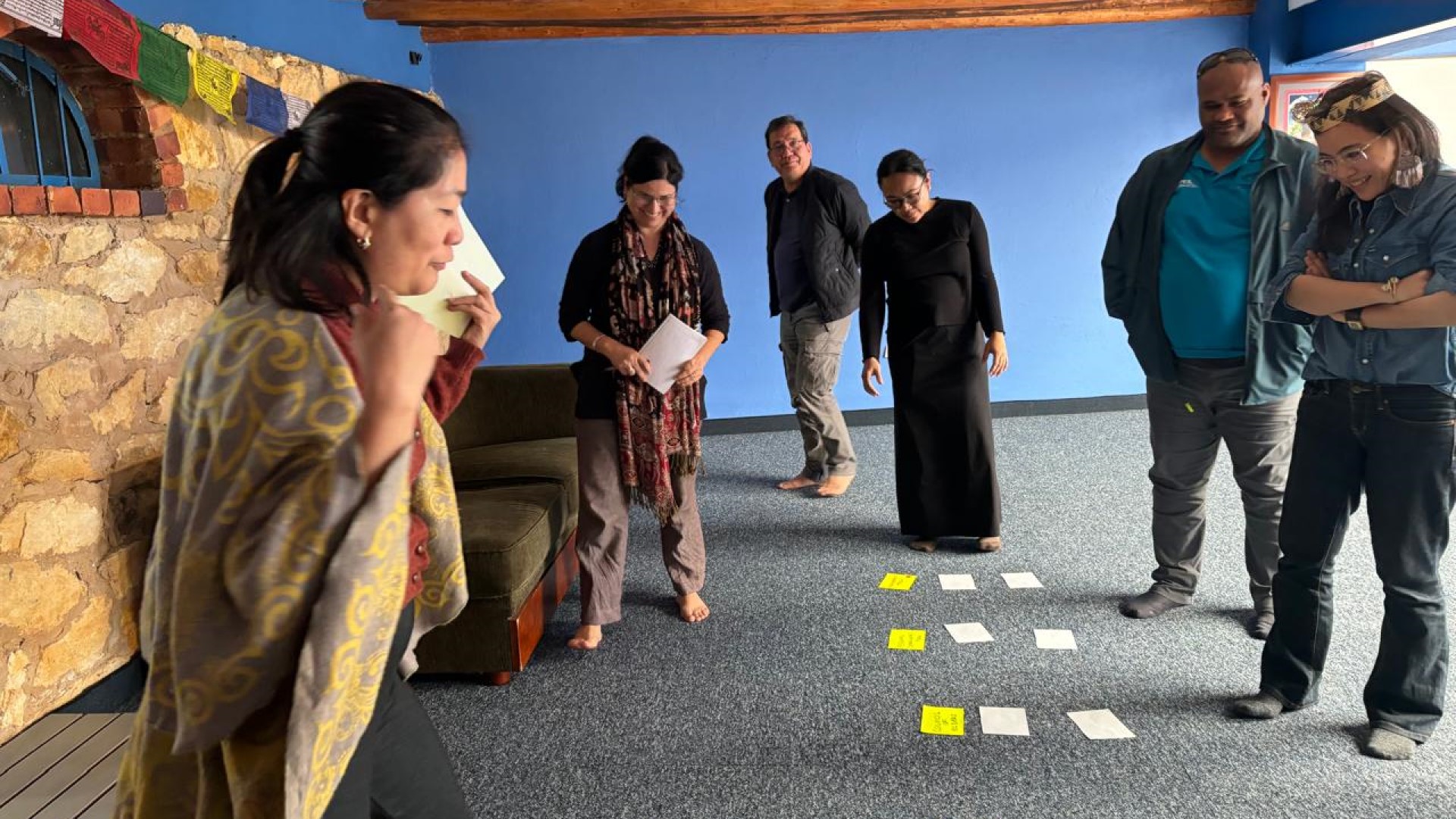
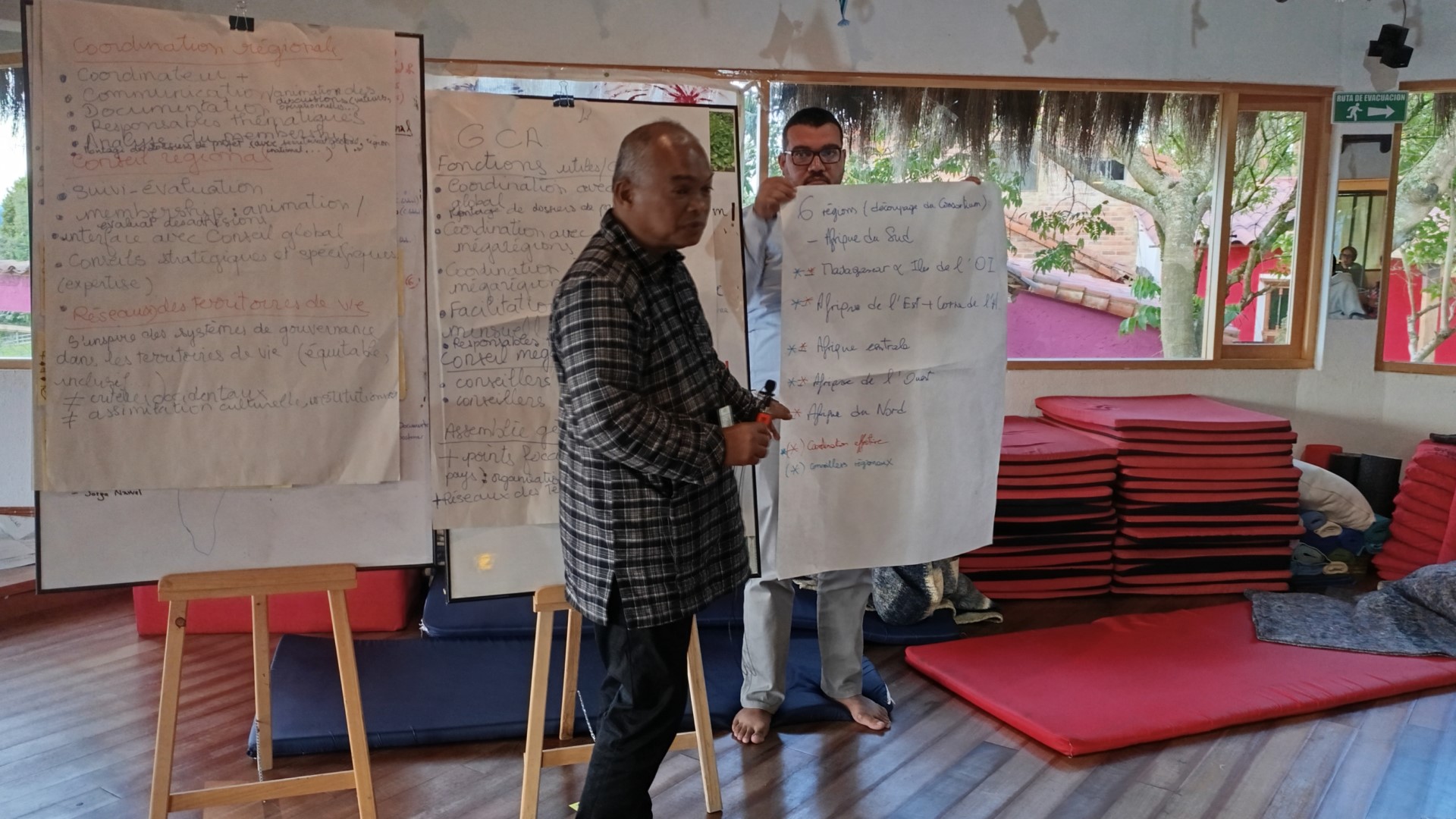
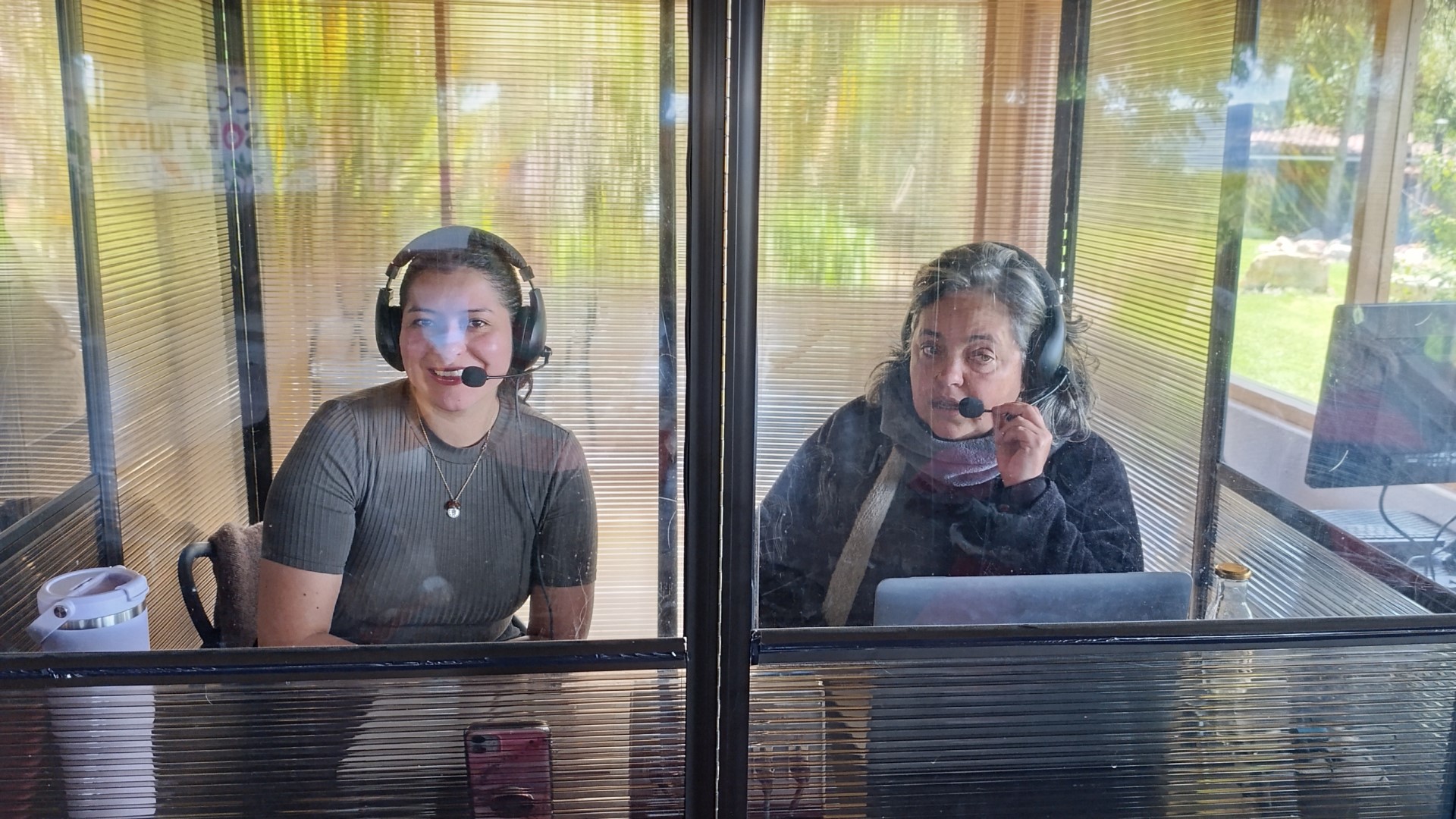


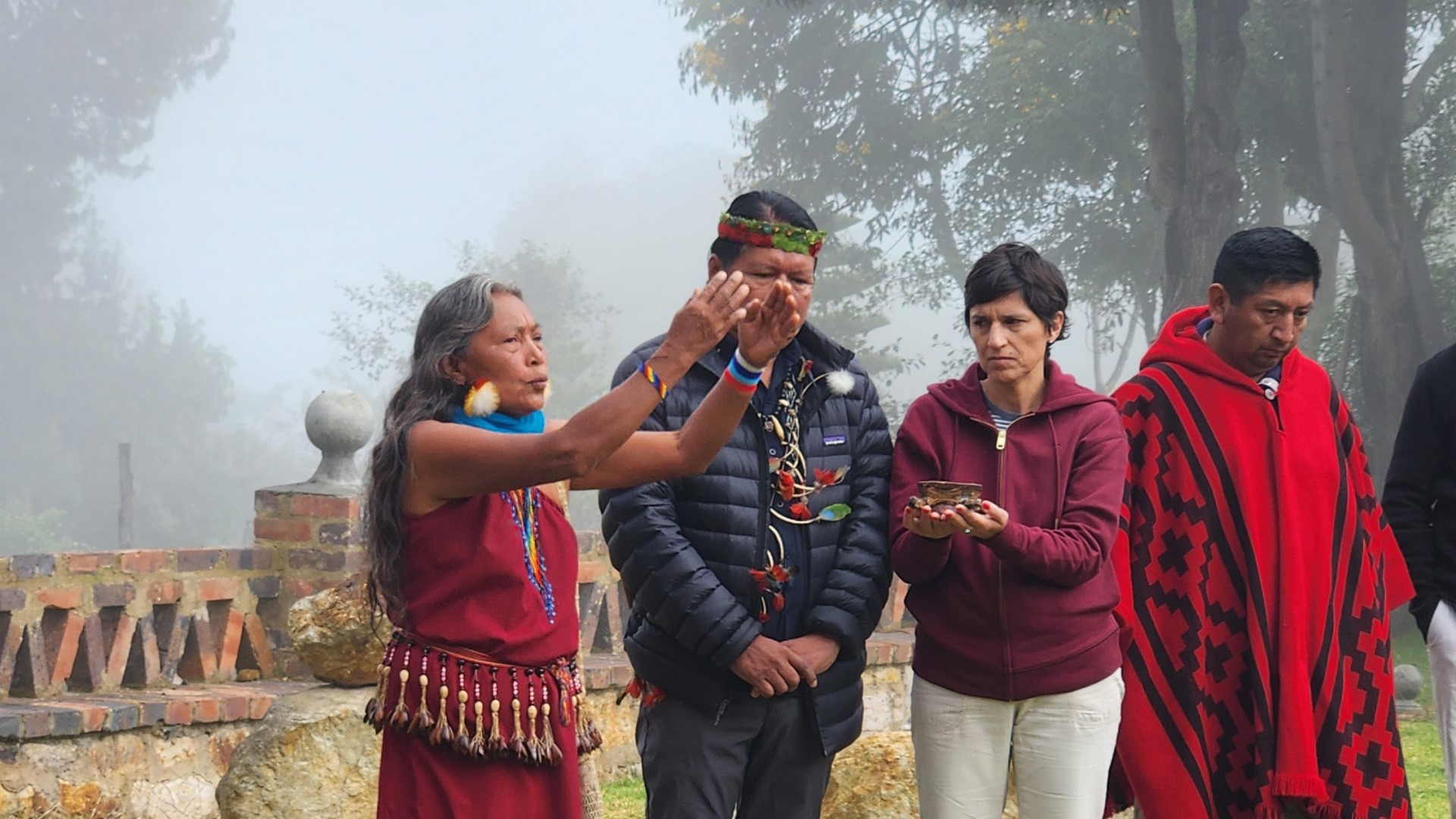
Governance and organizational structure
The meeting focused on clarifying the roles of the various Consortium bodies, ensuring there was no ambiguity in responsibilities. The discussions focused on understanding the interrelations between the Secretariat, the Council, and the Council of Elders. One of the key challenges identified was the need to enhance communication and coordination between these bodies and the regional teams. Moreover, discussions emphasized improving transparency in decision-making and ensuring that all members feel adequately represented and informed.
2024–2028 Strategic Plan
Another key topic was the Consortium’s strategic goals for the next five years. Key objectives include advancing self-determination for Indigenous Peoples and local communities, securing formal recognition of ICCAs—territories of life, expanding global influence, and strengthening internal organizational capacity. Participants agreed that the Consortium must evolve better to meet the growing demands of its members and stakeholders, particularly considering emerging global challenges such as extractivism, climate crisis, and political instability. It was emphasized that the organization must remain flexible and responsive to the needs of the communities it serves while maintaining its focus on rights and recognition at the international level.
Regional priorities and challenges
In regional breakout groups, Latin America, Africa, and Asia-Pacific delegations discussed their regions’ specific challenges and priorities, identifying barriers such as financial constraints, governance issues, and communication and coordination difficulties. Key discussions emphasized the need for stronger systems to support regional initiatives, better funding mechanisms, more precise role definitions, and enhanced local capacity-building. Specific actions were proposed to address these challenges, such as creating dedicated regional communications roles and exploring new funding avenues.
Preparation for CBD COP16
In preparation for CBD COP16, the meeting worked on establishing a unified position on key issues related to conservation, particularly the recognition and protection of territories of life. Participants discussed how best to engage with CBD COP16 processes, including coordinating regional contributions and showcasing community-led conservation models. The emphasis was placed on direct funding for Indigenous Peoples and local communities and reducing reliance on intermediary organizations.
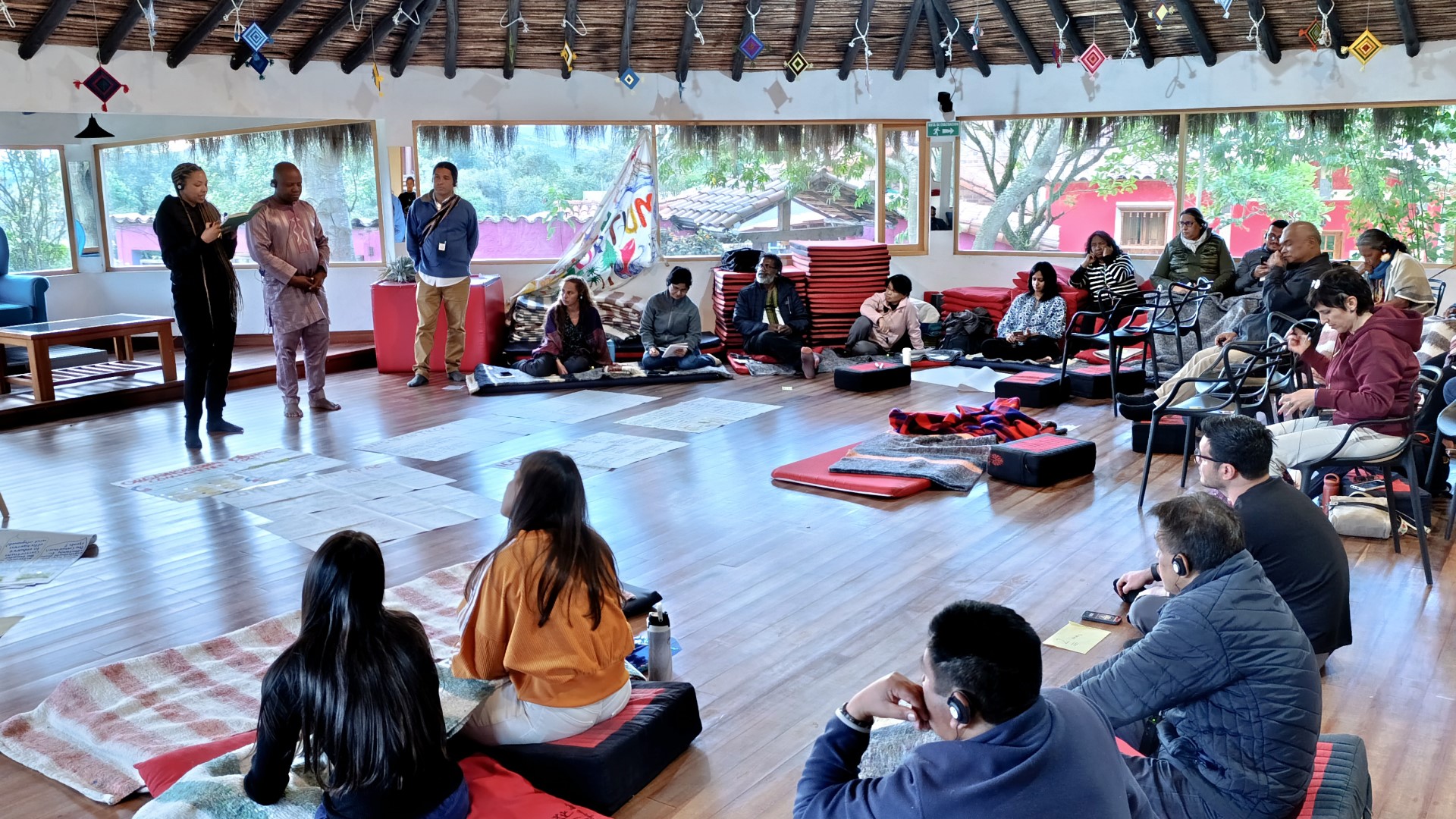
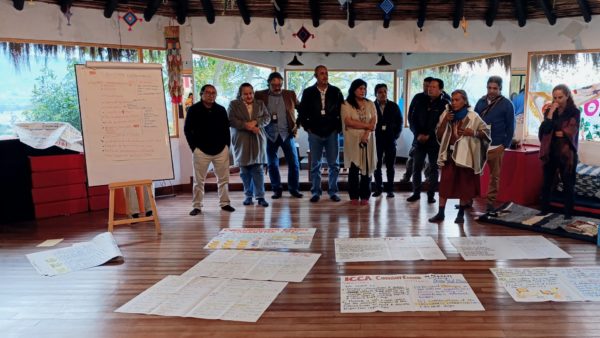
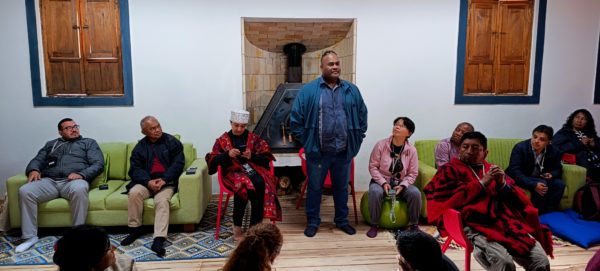
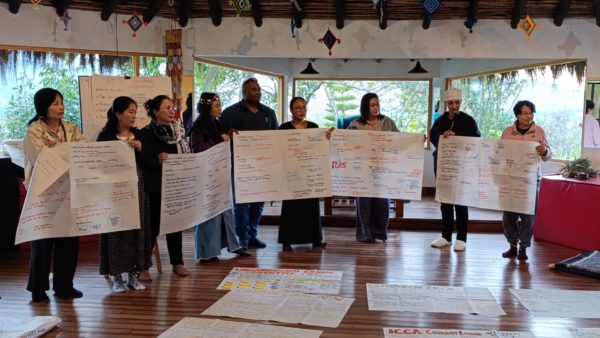
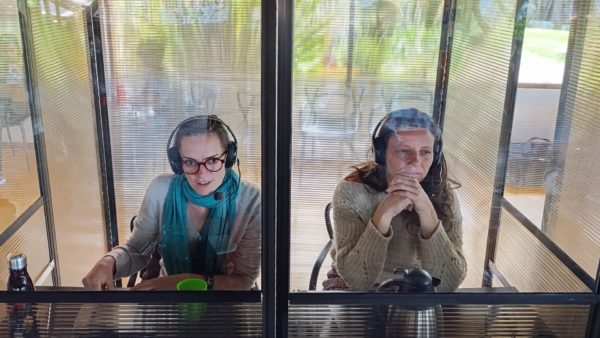

Key Achievements
- Organizational Change Committee
The composition of the Organizational Change Committee, which includes representatives from the Secretariat, Council, Council of Elders, and Honorary Members, was finalized. The committee will provide recommendations for improving governance structures, enhancing internal capacity, and ensuring that the Consortium’s values and mission are preserved as the organization grows. - Governance and accountability
Participants identified key areas for improving governance, including more precise roles and responsibilities, better communication, and enhanced decision-making processes. The meeting also generated specific action points, such as creating more precise systems for evaluating regional performance and ensuring transparency in resource allocation. - Regional action plans
Several proposals were made to strengthen regional communication strategies, address governance gaps, and improve local support. Participants emphasized the importance of enhancing regional team capacity and securing resources to support their initiatives more effectively. - CBD COP16 advocacy strategy
Participants outlined a strategy for CBD COP16, focusing on amplifying Indigenous Peoples’ and local communities’ voices.
The meeting was a pivotal moment in the Consortium’s organizational transformation. It clarified the path forward, ensuring the regionalization process is better aligned with global advocacy goals. The meeting laid the foundation for a more cohesive, transparent, and accountable Consortium, which is better positioned to meet the challenges facing territories of life around the world.
It reaffirmed the Consortium’s commitment to inclusivity, collective action, and empowering communities to lead conservation.
A detailed meeting report will be published and made available to the membership soon.
